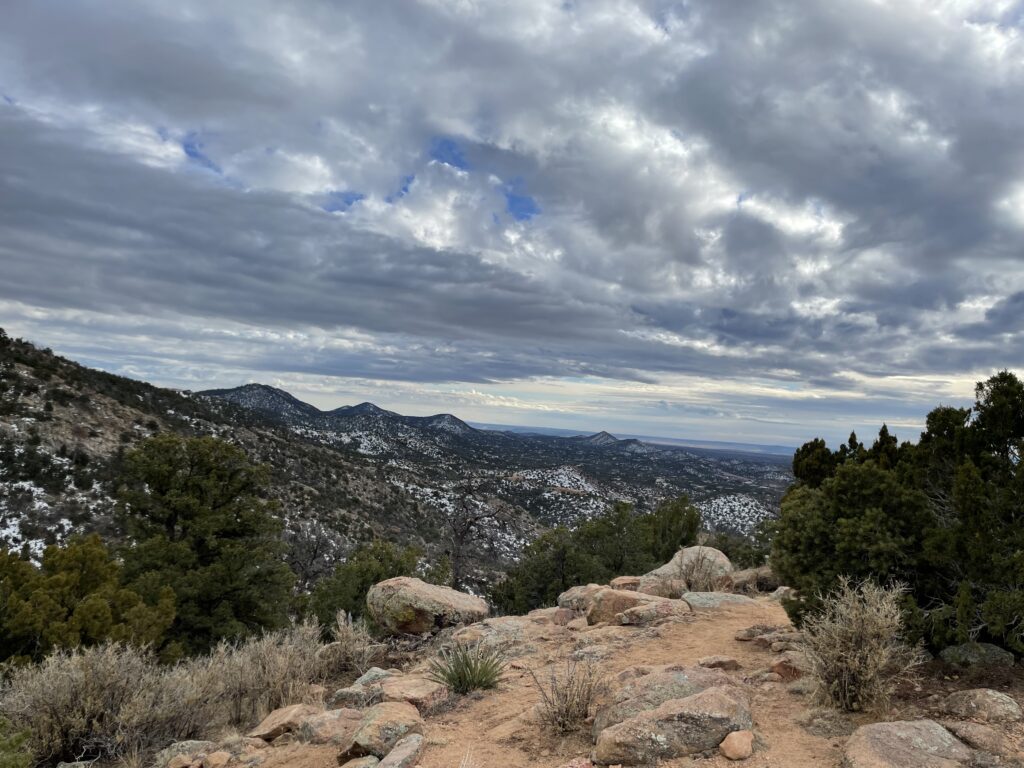
Normally, when people talk about broken hearts, they mean it metaphorically. I had my heart broken literally, by an atrial myxoma, a non-cancerous tumor on my right atrium. Ironically, I had the tumor removed on February 14, a day I wasn’t crazy about anyway.
It was diagnosed at the end of January by a cardiac sonogram, which I had after a series of small strokes. I had the first of these in late summer 2022, but didn’t recognize it as a stroke. My right hand and arm went numb, as though I had fallen asleep with my arm pinned under me. It was strange, but it the feeling went away within an hour or so, and I made a note in my phone to take to talk about it at my next doctor appointment. Then I sort of forgot about it.
Then in October 2022, at the halfway point of a 7-mile loop hike, my right foot and lower leg went numb and I couldn’t feel the trail under my foot. It was so disorienting that I actually stopped and looked at the sole of my hiking boot to reassure myself that yes, it was ridged and had not somehow magically turned completely smooth. I walked slowly along the trail, my foot and ankle feeling unresponsive. I tried to set the worry aside, and just put one foot in front of the other floppy one, and get down. As I walked, the feeling abated until I was walking normally. Then at the end of the trail my right hand and arm went numb. That’s when the lightbulb turned on: numbness in both extremities on the same side. Oh my God, am I having a stroke?
But how? I was in excellent health. I was going on these long hikes every Saturday and Sunday. People like me weren’t supposed to have strokes.
I’ll spare you the tedious tale of repeated medical frustrations over the next three months. Long story short, the tumor was diagnosed in January and I spent 2½ weeks trying to talk myself off the ledge as I waited to have heart surgery—the cardiac catheterization to make sure my arteries weren’t blocked (they weren’t; nice to know), repeated Covid tests that had to be negative or they’d cancel the surgery, another stroke three days before the surgery and begging not to be put on surgery-delaying blood thinners, the shots I had to give myself in my abdomen in the days leading up to surgery, making a will and showing my kids where it and the financial passwords were, dreading that the tumor might be on the valve rather than cardiac wall (they couldn’t tell from the sonogram) in which case I’d need an artificial valve and be on blood thinners for the rest of my life (it wasn’t; I didn’t; I’m not).
I was lucky, both that the tumor wasn’t on the valve and that they removed it using the minimally invasive procedure so I don’t have a neck to navel scar. Minimally invasive is a relative term, however. They still stop your heart and deflate your lungs during an hours-long procedure. The recovery was more painful than anything I’d ever imagined. Apparently about 2% of myxomas grow back, and during recovery I decided that if mine did, I’d just take however long I had left if it did, because I was not doing that again. Ten months later, I feel differently, but the idea of repeating that experience still fills me with dread. After a few years of annual sonograms, I’ll know whether I’m one of the lucky 98%.
As most clouds do, this one had a silver lining. First, my kids were nice to me. My third child especially, a high school senior with an easy schedule, took wonderful care of me during the worst of the recovery.
Second, I realized that life is too contingent not to take what joy you can from it. I’ve always been future-oriented. I wish I could say that since my brush with mortality I’m savoring every possible every scrap of joy the universe dangles in my path. I’m not. I’m still working too many hours, still fretting and worrying. But not quite as much as I used to. I’m hiking a lot, taking vacation days, trying to connect more with family and friends.
Third, I learned what I was—and wasn’t—afraid of. As the surgery approached, I was desolate at the idea of leaving my daughters when they were too young to lose their mother, especially the youngest, who was only 14. I dreaded the possibility of living with an artificial valve, and the diminished capacity that would bring, or worse, having a major stroke before the surgery and living with disability. What I didn’t feel was fear of death. That surprised me.
Third, I feel grateful—not in the shut up and be grateful we’re always being told to be, but in a realistic way, recognizing that when things on the lower levels of Maslow’s pyramid are going well, it’s natural to be concerned with the ones higher up, but that it’s good to look down the pyramid from time to time and remember that what we take for granted now is, as Epicurus said, what we once wished for.
Finally, I care less about what other people think of me. I’m not saying I don’t care at all; people who truly don’t care at all are probably sociopaths. Natural selection designed us to care what others think so as not to be banished from the group. But I care a little less, and that has been a very good thing.
